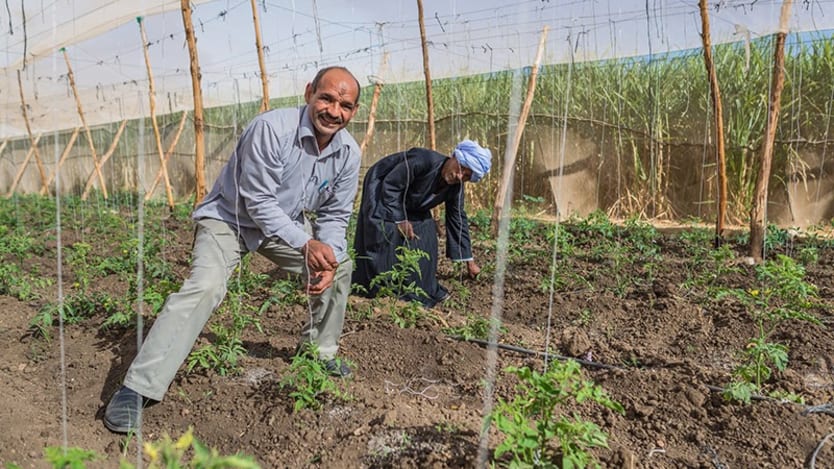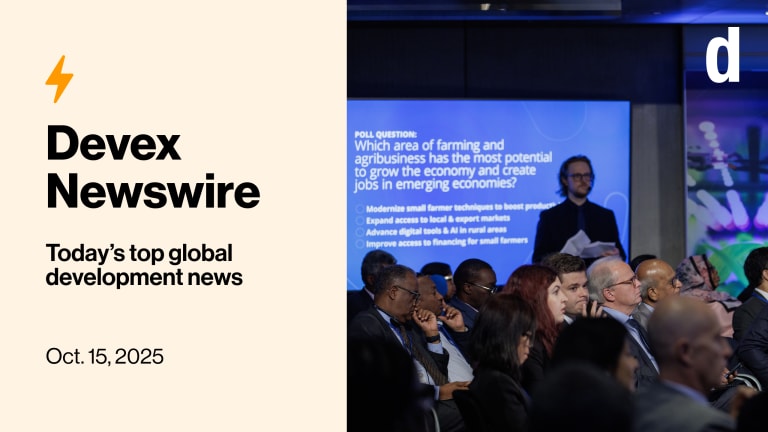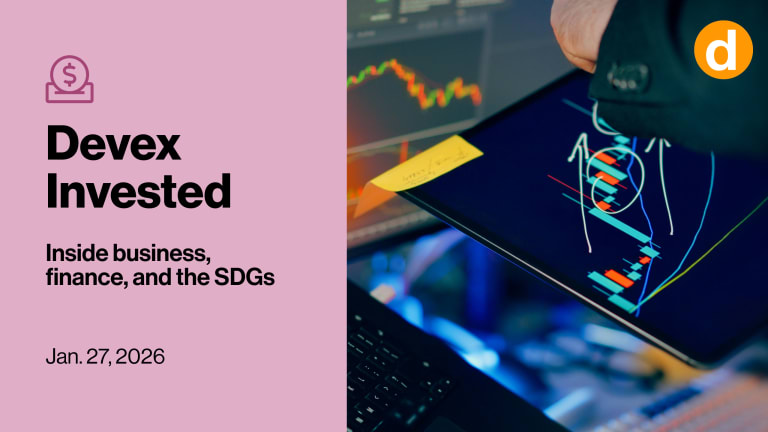
DAVOS, Switzerland — A new fund launched Tuesday aims to help boost financing for smallholder farmers and grow a new asset class that would appeal to a broader range of investors.
“It is my dream that in 2030, smallholder finance will be the best-yielding bonds on the NYSE.”
— Berry Marttin, managing board member, RabobankThe IDH Farmfit Fund is the largest impact fund for smallholder farmer finance. Funded by the Dutch Ministry of Foreign Affairs and backed by a guarantee from the U.S. government, it will start with €100 million ($111 million) and is expected to catalyze up to €1 billion of commercial investments for smallholder farmers in developing countries.
Most of the world’s roughly 500 million smallholder farmers, many of whom live in India and sub-Saharan Africa, lack access to capital, particularly the longer-term financing that aligns with crop cycles. Without commercial options, smallholders often turn to middlemen who charge extremely high interest rates, or they choose not to make investments to make their small farms more commercial.
IDH, The Sustainable Trade Initiative, which is based in the Netherlands, has for years worked with companies that source from smallholders, primarily on training to improve farming practices. But the adoption of best practices after the trainings was low because farmers lacked access to finance, which prevented smallholders from being able to “farm as a business,” according to the organization’s CEO, Joost Oorthuizen.
Smallholders remain poor because they lack services, from inputs and insurance to affordable finance. To tackle those challenges, the global community needs to lower risks. The need to better connect smallholders to finance, inputs, and markets led to the launch of the Farmfit initiative.
The new fund will work to support food security and climate protection by taking on most of the risk in deals aimed at improving smallholder livelihoods in Africa, Asia, and Latin America. The goal is for the fund to help mobilize investments from commercial investors who have until now seen smallholders as an unsafe investment.
The fund will be complemented by Farmfit Business Support, a $30 million technical assistance vehicle funded by the U.K. Department for International Development to help small- and medium-sized agricultural businesses develop sustainable business models. The fund also includes Farmfit Intelligence, a marketplace that shares insights about delivery models and works to improve investment strategies.
“We don’t believe the farmer is the problem — we believe the private sector environment around it is the problem. The ‘last mile’ is not happening,” Oorthuizen said.
That’s part of the reason Farmfit is focused on smallholder finance from a value chain perspective and why the initiative is a partnership with several companies, including Unilever, Rabobank, and Mondelez. The goal is to use companies’ purchasing power to help reduce the credit risk to farmers or have those companies lend directly to smallholders.
Unilever committed to buying 70% of the yield from a group of 1,000-1,500 farmers, which will help them access finance and give them a clear path to market.
“Farmfit is an enabler — we can’t satisfy bankers’ security guarantees otherwise,” said Magapa Ngako-Phaweni, owner of Wensleyfarms, who is coordinating the farmers Unilever has committed to buying from.
IDH has done something similar with Neumann Kaffee Gruppe, a German coffee trader, Oorthuizen said. NKG had invested in training but found that farmers still weren’t selling to the company. Instead, they were selling to middlemen whom they had borrowed money from. The company is now playing a role akin to a microfinance bank, lending money to farmers at reasonable rates on a yearly rotational basis that allows them to pay for inputs and school fees, he said. Financing the smallholders was a big risk for the company, but IDH is sharing the first loss of up to $5 million and was able to raise $20 million in senior debt from commercial banks, enabled in part by a 50% second-loss guarantee to the banks from the U.S. Agency for International Development.
While it may take a decade for smallholder finance to be considered an asset class, there is a precedent, Oorthuizen said. When microfinance began, people didn’t believe it would be an asset class, so he’s hoping to see another change of this kind, he said.
There are a few necessary steps to build smallholder finance into an asset class, according to Oorthuizen. Digitization is key both because digital identities can help farmers access finance and because mobile platforms can help provide training and information about market linkages.
In every major agricultural country in Africa, there need to be some commercial banks that specialize in agriculture and smallholder lending, Oorthuizen said. It would be good to see competing platforms providing services to farmers that help them access markets. Also critical is land reform, which will help smallholders see land as a commercial venture rather than something “nice to have,” he said.
“If we want to achieve our shared ambition of sustainably feeding a growing world population, then it is essential that we improve access to capital for smallholder farmers,” said Berry Marttin, a member of Rabobank’s managing board. “It is my dream that in 2030, smallholder finance will be the best-yielding bonds on the NYSE.”








